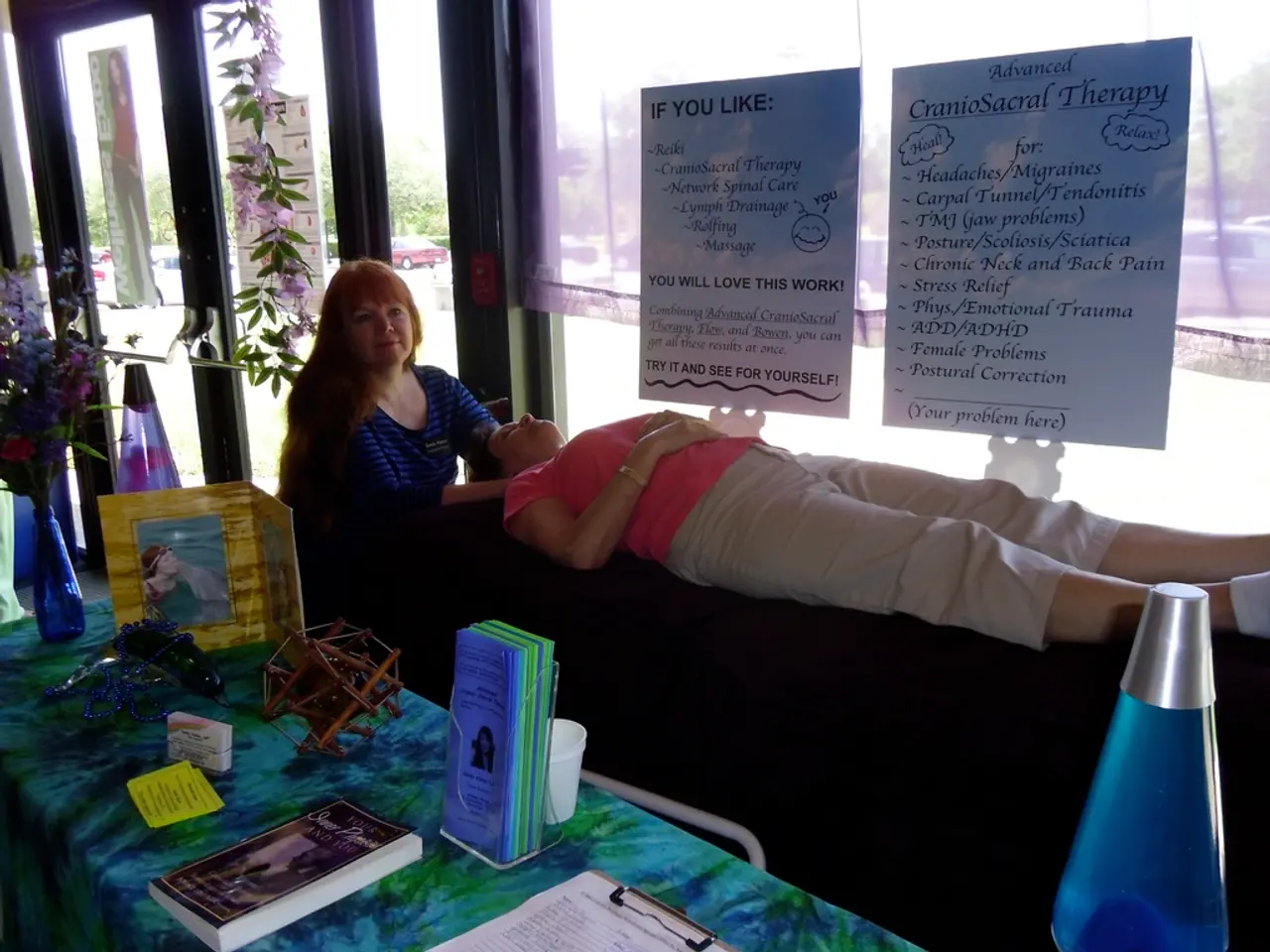Self-care, Therapy Sessions, and Medications: Strategies for Anxiety Management
Anxiety disorders, a persistent feeling of worry that can disrupt daily life, affect millions of people worldwide. In the United States, 18.1% of American adults have an anxiety disorder, representing about 40 million people, with only 36.9% receiving treatment, according to the Anxiety & Depression Association of America.
Effective treatments for anxiety disorders combine medical approaches, psychotherapy, and home/self-care strategies.
### Medical Treatments
Commonly prescribed medications for anxiety disorders are antidepressants, especially selective serotonin reuptake inhibitors (SSRIs), which help regulate brain chemistry associated with anxiety. Benzodiazepines may be used short-term for severe anxiety relief but have risks of dependence and side effects.
Professional psychotherapy is also a crucial component of anxiety treatment. Cognitive-behavioral therapy (CBT) is highly effective. It teaches patients to identify and challenge negative thought patterns and develop coping strategies. Other psychotherapies, such as psychodynamic therapy, help patients explore underlying emotional conflicts and past experiences contributing to anxiety.
### Home and Lifestyle Approaches
Relaxation techniques, such as deep breathing, progressive muscle relaxation, meditation, guided imagery, and breathwork, help reduce physical symptoms of anxiety. Mindfulness practices, like mindfulness meditation and grounding techniques, help manage anxious thoughts and emotions. Regular aerobic exercise reduces overall anxiety levels and improves mood. Adequate sleep and a balanced diet support mental well-being and reduce anxiety symptoms.
Alternative therapies, such as acupuncture and massage therapy, have shown evidence in reducing anxiety symptoms as complementary treatments. Limiting intake of stimulants like caffeine and nicotine, which may exacerbate anxiety, is also beneficial.
### Social and Supportive Measures
Support groups provide emotional support and reduce feelings of isolation. Setting realistic goals and breaking tasks into manageable steps helps decrease overwhelm and builds confidence.
### Summary
In treating anxiety disorders, a combined approach tailored to the individual's needs is most effective. Professional guidance is strongly recommended to choose the best mix of therapies and monitor progress.
Benzodiazepines are highly addictive and would rarely be the first-line medication for anxiety. Anxiety attacks can be managed with strategies such as taking long, deep breaths, splashing water on the face, and repeating calming language, such as "I am safe."
Tricyclic antidepressants (TCAs) are effective in treating most anxiety disorders other than obsessive-compulsive disorder (OCD), but may cause side effects such as drowsiness, dizziness, and weight gain. The central nervous system, which includes the brain, controls the body's response to stress and anxiety. One theory is that in people with anxiety, the amyggdala excessively reacts to triggers in the person's environment.
There are different types of anxiety disorders, such as generalized anxiety disorder and social anxiety disorder, listed in the Diagnostic and Statistical Manual of Mental Disorders, 5th edition (DSM-5). To determine whether a person has anxiety, a doctor will assess for a range of cognitive, physical, and behavioral symptoms. To be diagnosed with an anxiety disorder, a person must exhibit specific symptoms, which are outlined in the DSM-5. Depending on the specific type of anxiety disorder, the criteria for diagnosis vary.
- A balanced diet support mental well-being and reduce anxiety symptoms, as nutrition plays a vital role in maintaining overall health and mental health.
- In summary, effective treatments for anxiety disorders often involve a combination of medical treatments, psychotherapy, home/self-care strategies, social support, and alternative therapies.
- Tricyclic antidepressants (TCAs), while effective in treating most anxiety disorders other than obsessive-compulsive disorder (OCD), may cause side effects like drowsiness, dizziness, and weight gain.
- To manage an anxiety attack, strategies such as taking long, deep breaths, splashing water on the face, and repeating calming language can be helpful, as they can help provide immediate relief.






